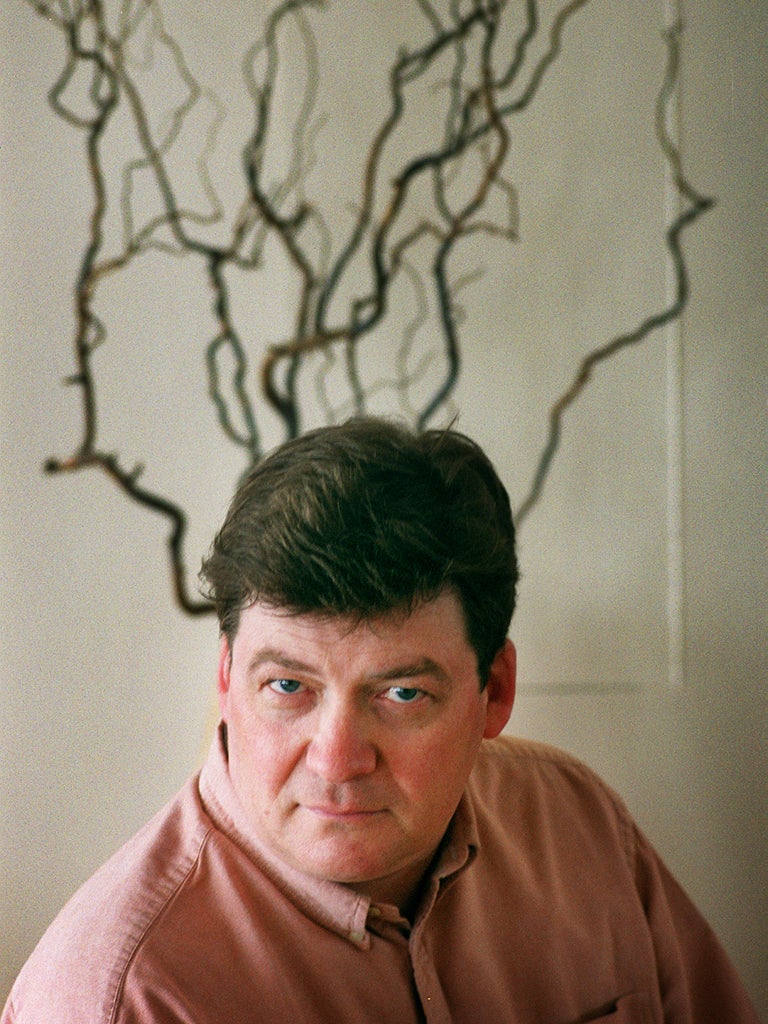Former drug addict wins prestigious poetry prize
John Burnside beats strong field to take T S Eliot award at third try with haunting collection 'Black Cat Bone'

Your support helps us to tell the story
From reproductive rights to climate change to Big Tech, The Independent is on the ground when the story is developing. Whether it's investigating the financials of Elon Musk's pro-Trump PAC or producing our latest documentary, 'The A Word', which shines a light on the American women fighting for reproductive rights, we know how important it is to parse out the facts from the messaging.
At such a critical moment in US history, we need reporters on the ground. Your donation allows us to keep sending journalists to speak to both sides of the story.
The Independent is trusted by Americans across the entire political spectrum. And unlike many other quality news outlets, we choose not to lock Americans out of our reporting and analysis with paywalls. We believe quality journalism should be available to everyone, paid for by those who can afford it.
Your support makes all the difference.A celebrated poet who has documented his battle with alcoholism and drugs saw off competition from a heavyweight shortlist including laureate Carol Ann Duffy to win the highest accolade in British poetry at the third time of asking.
The Poetry Book Society last night awarded Scottish poet John Burnside the £15,000 T S Eliot Prize for his collection Black Cat Bone, just three months after he won the £10,000 Forward Prize for the same work.
The T S Eliot Prize for Poetry, which is in its 19th year, was called the "prize most poets want to win" by former Poet Laureate Andrew Motion, and previous winners include Ted Hughes and Seamus Heaney. Burnside had previously been shortlisted for the award in 2000 for The Asylum Dance, and then two years later for The Light Trap.
Yet the prize has been mired in controversy this year after two shortlisted poets pulled out in protest over the choice of sponsor. Alice Oswald and John Kinsella both withdrew from the competition over the involvement of investment company Aurum Funds.
The Society announced Aurum's three-year sponsorship last year, following news that it would lose all funding from the Arts Council. Oswald, who won the Prize in 2002, withdrew in December saying she was "uncomfortable" with the sponsorship by a company that invests in hedge funds.
Kinsella followed, saying the "business of Aurum does not sit with my personal politics and ethics". Desmond Clarke, vice-chair of the Poetry Book Society, called the decision to withdraw "misguided".
Burnside's victory was announced last night at the Haberdashers' Hall in London. Gillian Clarke, who became National Poet for Wales in 2008 and chaired the judging panel, said: "In an exceptional year, it is an outstanding book; one which the judges felt grew with every reading." She said Black Cat Bone was "a haunting book of great beauty, powered by love, childhood memory, human longing and loneliness". Burnside deals with his addiction to drugs in the volume – a subject he has written about before, saying he was a "full-scale lunatic".
The judges chose Burnside's work from what it termed an eight-strong "star-studded" shortlist which included Carol Ann Duffy's The Bees, and Sean O'Brien, winner of the prize in 2007.
Burnside left Scotland in 1965 and worked as a factory hand, labourer and gardener, but it was during the decade spent as a computer systems designer that his life unravelled.
His first collection of poetry, The Hoop, was published in 1988. He won the Whitbread Poetry Award in 2000 for The Asylum Dance.
He now teaches at the University of St Andrews and has written short stories, novels and two memoirs. His novel A Summer of Drowning was shortlisted for the Costa best novel award earlier this year.
T S Eliot, whose celebrated works include The Wasteland and The Lovesong of J. Alfred Prufrock, set up the Poetry Book Society with friends in 1953.
A prize in his honour was established in 1993. Valerie Eliot, the poet's widow, and his estate have provided the prize money since the awards have started.
Extract: Black Cat Bone
No more conversations.
No more wedlock.
No more vein of perfume in a scarf
I haven't worn for months, her voice come back
to haunt me, and the Hundertwasser sky
Magnificat to how a jilted heart
refuses what it once mistook for mercy.
It's never what we wanted, everafter;
we asked for something else, a lifelong Reich
of unexpected gifts and dolce vita,
peach–blossom smudging the glass and a seasoned
glimmer of the old days in this house
where, every night, we tried and failed to mend
that feathered thing we brought in from the yard,
after it came to grief on our picture window.
From 'Black Cat Bone', published by Jonathan Cape'
Join our commenting forum
Join thought-provoking conversations, follow other Independent readers and see their replies
Comments